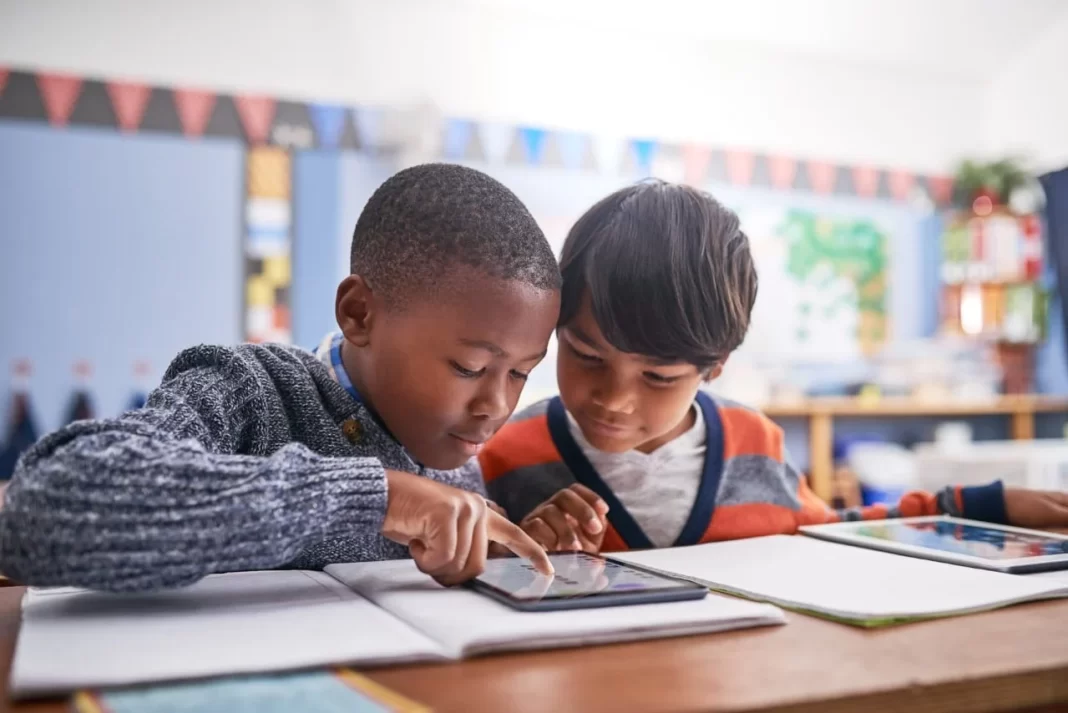The COVID-19 pandemic greatly affected the way that education is conceived and delivered worldwide. As institutions in South Africa adapt to the new learning environment and consider implications for students, faculty, and staff, technology plays a critical role in enabling successful outcomes both today and in the future.
That’s why OneConnect and Anthology have partnered to support the South African education community and help more students and institutions achieve their goals. With a holistic approach to education technology that’s focused on delivering dynamic, data-informed experiences, OneConnect and Anthology are breaking down silos and connecting critical systems to open up a world of new possibilities for learning.
Blending Data with Experiences
A learner doesn’t exist inside one system alone, and neither does an institution. By bringing together data and insights across core solutions, the right technology can help educators develop a deeper understanding of students to deliver more personalised experiences tailored to meet the needs of each learner.
This also helps institutions drive operational efficiencies and meet objectives around critical areas like enrolment, retention, and engagement.
And learners are hungry for more personalised experiences. According to a global survey recently fielded by Anthology, 66% of learners agree that their university views them as individuals with unique needs and preferences, but most learners express a desire for even greater personalisation.
For example, 70% would like to receive more reminders of deadlines and other key information, such as a notification about an outstanding bill or when to register for classes, as they would be more likely to complete the task on time or if prompted. And 71% would like to receive recommendations about which courses to take and when to do so during their academic career.
More personalised experiences can also provide the support needed to keep students on track toward achieving their goals. Survey results indicate 40% of students strongly agree that they would like to receive more support from their university to be successful. Aligning that support to the areas in which students feel they need it is critical. More tailored financial aid and career-focused support top the list.
Higher education leaders are nearly unanimous in their perspective on the potential impact that blending data and experiences could make. 94% globally agree that a holistic view of learner data pulled across multiple systems would benefit their team and help more students achieve their goals. The same percentage of higher education leaders are also actively looking for new opportunities to aggregate and analyse learner data to drive more insights.
“By considering student feedback and investing in technology resources to deliver more personalisation across everything from course delivery options to career services, higher education leaders can position their university to provide an experience that meets the needs of today’s learners—and those of tomorrow,” said Jim Milton, Chairman and CEO, Anthology.
“We believe that education technology solutions allow students in rural and remote areas access to the same quality of education as a child attending the best private school in the city. Furthermore, that student can interact with peers across the country and the continent; be exposed to new ideas and new opportunities, benefitting from the diversity and richness of their engagements. Our aim is to also help education institutions see that they can grow their businesses beyond brick and mortar and do so quickly – breaking down “walls” to reach students beyond their physical geography, through sophisticated solutions that make administration and teaching seamless,” said Rogers Sithole, MD of OneConnect Education.
Learners want and expect technology to be more prevalent in their higher education experience and university leaders are keenly aware of opportunities to adjust course delivery and enhance technology. In fact, according to the same global survey, 60% believe their institution lacks some of the appropriate digital learning tools to help learners succeed. Perhaps more importantly, 17% of global leaders believe that the technology resources provided by their university do not match up with learner needs in a way that adequately supports their studies. But those same leaders clearly recognise a shifting landscape, with nearly 60% confident that more classes will be available online in the next five years.
Institutions recognise the urgent need for new education technology as well as aligning their current tools to the changing landscape of digital learning. To that end, 45% of higher education leaders have maintained the same technology but significantly changed the way administrators, faculty, and students rely on digital resources, likely due to shifts associated with the pandemic.
The good news is that universities are on the right track according to learners’ expectations of how technology is incorporated into their experience.
For example, 73% of students globally prefer to submit assignments in an online portal, and 70% indicate they often or always submit assignments this way. 70% of students also prefer to receive instructor feedback on assignments through an online platform, and 66% of students indicate they often or always receive feedback this way. As universities continue along the path to fully supporting learners, more investment in technology is necessary. University leaders are cognisant of this need, and more than half are considering additional investments.
CNBCA







